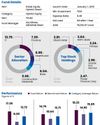
About a month after the Union Budget was announced in July 2024, the government approved the new Unified Pension Scheme (UPS) for central government employees, as an alternative to the National Pension System (NPS).
Around 20 years ago, when NPS replaced the Old Pension Scheme (OPS) in January 2004, it faced a lot of opposition. NPS allowed the transition from a defined to a market-linked benefit scheme, but the fact that the returns couldn't be guaranteed became a bone of contention. Its adoption, though, is considered a fiscally prudent move.
Initially, all states except West Bengal adopted NPS, but several state governments, such as Rajasthan and Himachal Pradesh later returned to OPS due to popular demand despite the burden on the treasury.
The Bharatiya Janata Party's (BJP)led government stuck to its guns on NPS. The announcement of UPS is being seen as a climbdown for the government after the June 4 results, which saw the ruling BJP's Lok Sabha tally reduced to 240 from 303, apparently due to discontent over issues like NPS, unemployment and price rise.
The new UPS is something in between OPS and NPS. For instance, like OPS, it is a defined benefit plan where the amount of pension is fixed as a percentage of the last salary. On the other hand, like NPS, the employee will need to contribute towards UPS. Let's find out more about the scheme and how it compares with NPS and OPS.
WHAT DOES UPS OFFER?
While the scheme's general outline has been made public, some vital details are yet to be announced and officially notified. The deadline to implement the scheme is April 1, 2025, and will be applied retroactively to allow those interested in switching to UPS. All government employees will get a one-time option to switch to the new plan.
This story is from the {{IssueName}} edition of {{MagazineName}}.
Start your 7-day Magzter GOLD free trial to access thousands of curated premium stories, and 9,000+ magazines and newspapers.
Already a subscriber ? Sign In
This story is from the {{IssueName}} edition of {{MagazineName}}.
Start your 7-day Magzter GOLD free trial to access thousands of curated premium stories, and 9,000+ magazines and newspapers.
Already a subscriber? Sign In

BUDGET & YOU: NEW REGIME BEATS OLD IN FY26
Lower tax slabs and nil tax on incomes up to 12 lakh has not only provided relief to middle-class families but also rendered the old tax regime irrelevant for most of them. The government also renewed its focus on senior citizens

Consistent Returns In Hybrid Space
The Indian equity market is going through rough waters, leaving investors uncertain about whether to choose equity or fixed-income investments. Experts, meanwhile, predict higher volatility and recommend a safer approach.

BEHIND THE MIND GAMES THAT END IN 'DIGITAL ARREST'
The new scam of digital arrest employs psychological pressure to dupe vulnerable victims, who go through a phase of trauma and fear. We tell you how it works, whether the government is doing enough to curb the menace, and how you can keep yourself safe

Boost To Consumption, But Don't Buy Blindly
With the budget putting more money into the hands of people to boost consumption and increasing foreign direct investment in insurance, certain consumer-oriented sectors, such as FMCG, auto, as well as manufacturing are expected to do well, but think before investing

Pre-Existing Diseases In Insurance
Understanding pre-existing diseases (PEDS) in health insurance is crucial because they can affect your coverage and premiums. Pre-existing conditions, such as diabetes or heart disease, are health issues you may already have and know of before purchasing insurance.

'Govts Are Often Influenced By Private Interests, And Don't Focus On Health'
Longevity is not about going to the gym or having superfoods, but living in an environment that promotes a healthy lifestyle. Dan Buettner, the Blue Zones founder, National Geographic fellow, best-selling author and the producer of the Emmy Award-winning 'Live to 100: Secrets of the Blue Zone' series, learnt this during his decades-long research into five blue zones of the world. In an interview with Nidhi Sinha, Editor, Outlook Money, as part of the Wealth Wizards series, he talks about another kind of wealth, a healthy and fulfilling long life. He also talks about blue zones, and how policy matters when it comes to improving the health, lifestyle and longevity of the population

The 'Gap' In Long-Term Returns
There is a significant gap in the nominal and inflation-adjusted returns across asset classes. So, reading long-term trends is important before making investing decisions

Changed Jobs? Where is Your EPF Money?
For many employees, transfer of EPF becomes a nightmare when changing jobs. We give you the likely problem scenarios and what you should do for a seamless transfer of your EPF upon changing jobs and states

Old-New Break-Even Point Is High
The break-even point for deductions to choose between the old and new tax regimes has increased to ₹8.50 lakh for income of ₹24.75 lakh and above. Normally, deductions and exemptions commonly claimed by salaried individuals do not exceed ₹8.50 lakh

How Not To Be Financially Vulnerable
We often naïvely assume that our monthly pay cheques will cover whatever life throws our way. But it may not cover all our emergencies, which is why we need to create a safety net